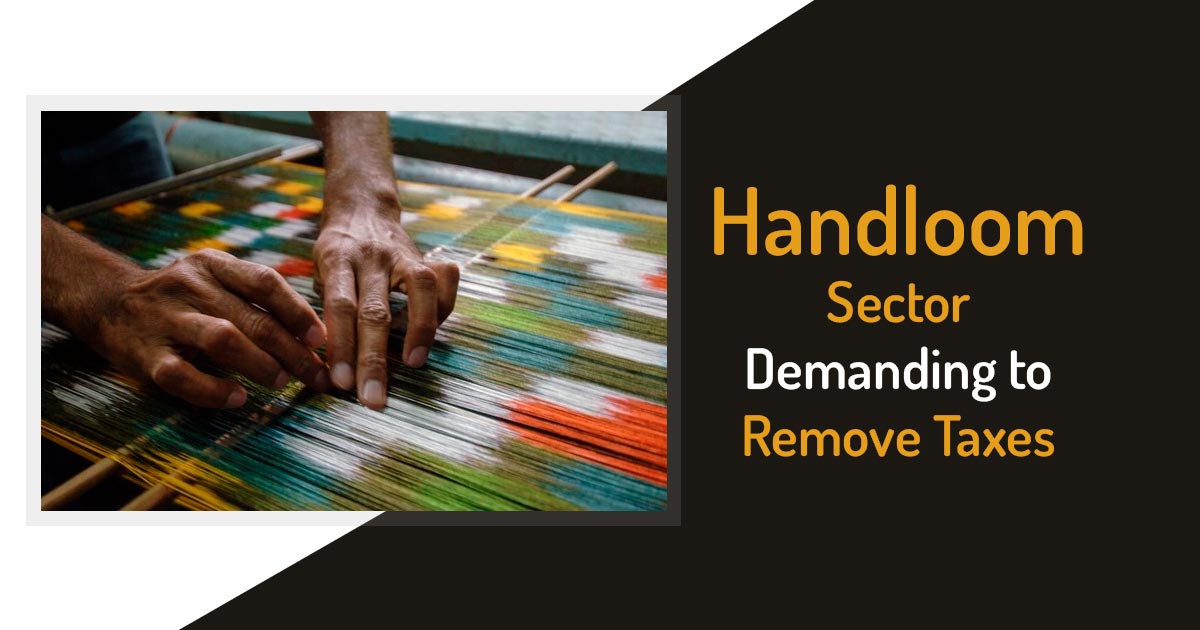
The traditional Handloom weavers who are suffering because of the livelihood crises seek for the central government to refuse the GST and additional taxes upon the cloths and raw material.
A letter was written to the central finance minister Nirmala Sitharman by the weavers’ leaders (All India Handloom Rights Forum) which describes the hardships that the handloom weavers are facing and a load of GST and additional taxes from which they suffer.
Because of the domination of the mechanized handloom and handicraft industry the older handloom weavers are slowly losing their work for the former year. Because of reducing demand with time, there is no amendment in the wages of the mastered people and thus their salaries were the same as before despite the cost of commodities rising. The conditions get affected by covid-19 and they imposed to leave the handloom pits to works as causal labor at hotels, workshops, factories, and construction sites. Those, who are persisting in the profession, are weaving for lower wages corresponded with the pre-Covid times.
Avvaru Venkateswarlu, a handloom weaver at Eepurupalem mentioned that they are obtaining approximately 30% lower wages with respect to the wages they obtained in 2019. He mentioned that the master weavers diminish the work given to them by almost 20 to 30 per cent as wanted for the handloom cloth reduced in the market and the investment of the raw materials indeed rises. He added that their lives get disrupted with the GST levied on cloth (textile) by the government.
The All India Handloom Rights Forum (AIHRF) writes a letter to Central Finance minister Nirmala Sitharaman mentioning the ordeals of the handloom weavers and the hardships of the taxes on poor families lastly.
AIHRF leader Bandaru Jwala Narasimham explained in the letter about lakhs of handloom weavers in-country quit their job and became employees in different fields due to lack of work in the handloom sector. He also commented that some workers in the handloom sector committed suicide who were not able to see their families starve when the master weavers diminish their work because of the GST levied and the additional taxes on the handloom sector along with the raw materials by the central government.
Jwala elaborated that the government imposed a 5% tax on hank yarn, 18 per cent on the chemicals, and colours, and four per cent on the cloths whose value stands over Rs 5000 imposing the master weavers to surge the investment by diminishing the formerly meagre profits hence influencing the wages of the poor weavers. He asked the minister to support the traditional handloom sector via cancelling the GST and waiving the taxes upon raw materials.









